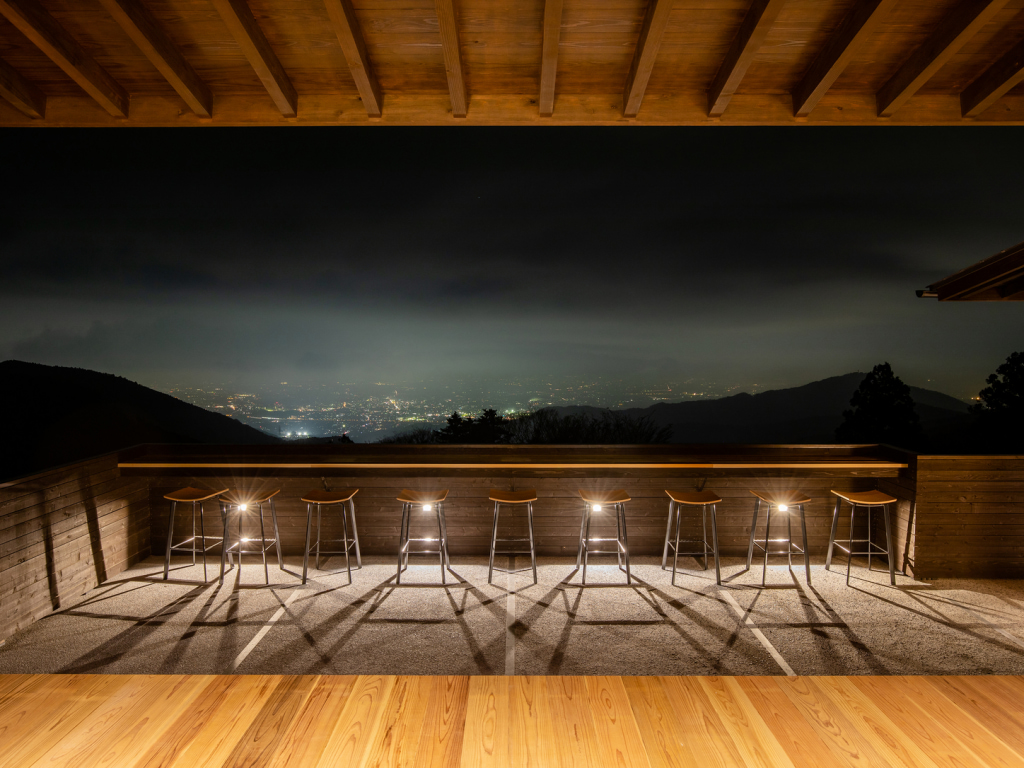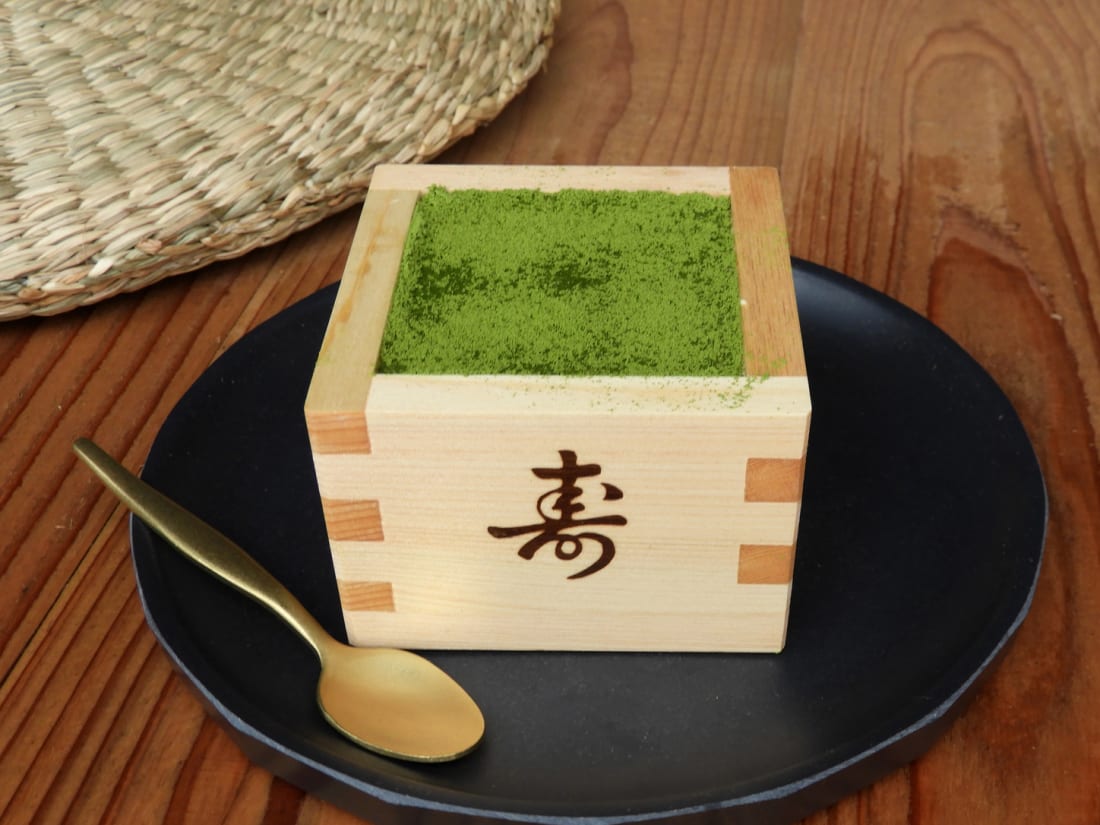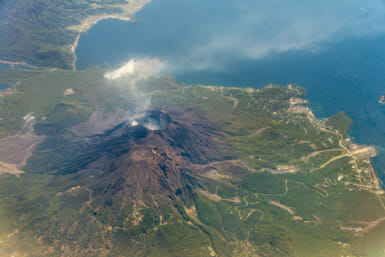On the eastern edge of the Tanzawa Range in Kanagawa Prefecture, Mount Oyama rises over the plain below to gaze east toward Enoshima Island, Kamakura and the Boso Peninsula. It is tall enough for clouds to snag on its peak and give the mountain its other name, Amefuri Yama, or the rainy mountain. The tall cedars, cherries, chestnuts and oaks that cover its broad face shelter deer, wild boar and countless birds. It’s easy to see why a god would settle here.
Indeed, three gods, Ikazuchi, the god of thunder; Ama, the god of fishermen, and Toriiwakusubune, the god of ships, call Oyama’s Afuri Shrine home. As a result, it has always been a hub of activity. Since the Jomon Period (14,000 to 300 BCE), people have climbed all 1,252 meters (4,100 feet) to pray for a good harvest, a safe voyage or rain for fields.
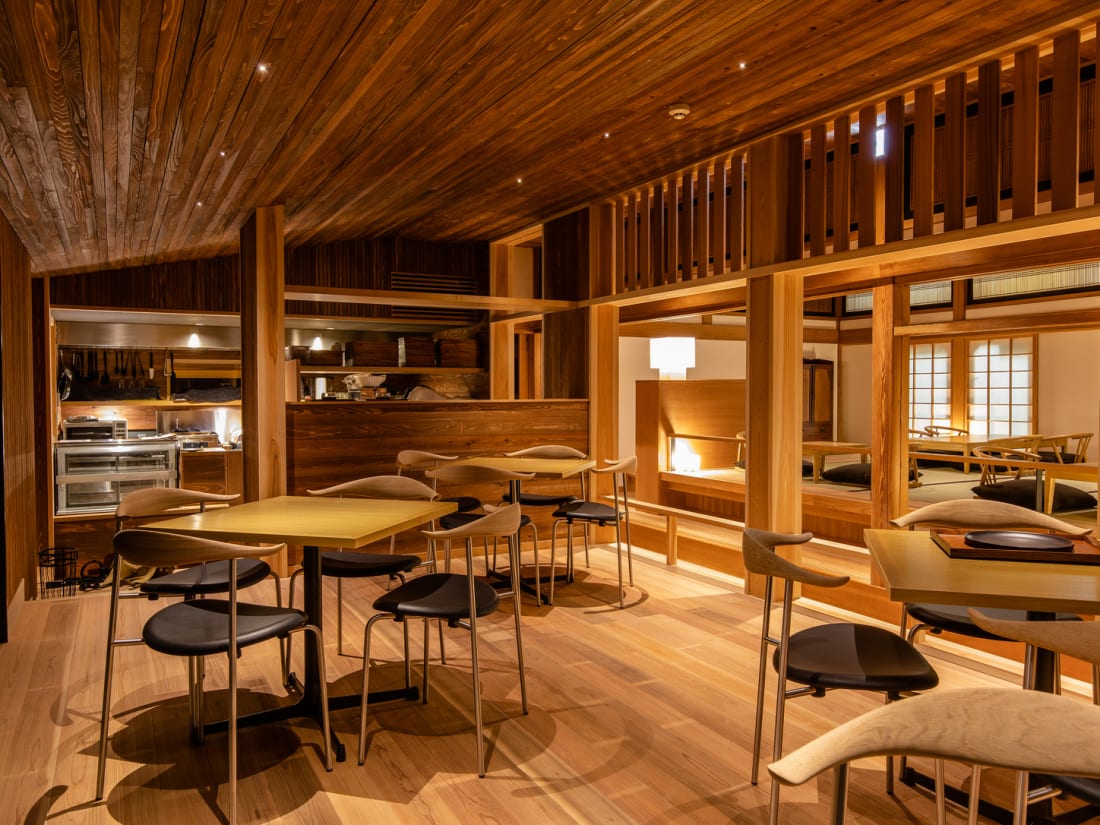
Courtesy of Teahouse Sekison
A Refined Pilgrimage
Now, pilgrims, along with hikers and tourists alike will find a new resting place. Teahouse Sekison opened this April and is part of a new trend at shrines around the region. A remodeled section of the main shrine building, the café gives an old space a new look and use.
“For three hundred years, Afuri Shrine has been a place of importance,” says Kunihiko Meguro, son of the head priest of Afuri Shrine. “Many people still come, but we wanted something modern to attract new visitors and encourage them to spend some time.”
Meguro worked closely with Yasushi Horibe, an internationally renowned Tokyo-based architect, and Yukio Uchida, a carpenter specializing in traditional Japanese building techniques. Both Horibe and Uchida are no stranger to plying their craft in sacred spaces. Horibe designed the Charnel House at Chikurinji in Kochi, which won the 2016 Architectural Design Prize of the Architectural Institute of Japan. Uchida, meanwhile, often works in Kyoto maintaining temples and historic buildings.
“I wanted to do something creative,” Horibe said, “something for the future as well as the past. I really thought about the different users – hikers or families with children – and wanted to make sure that there is a place for everyone.”
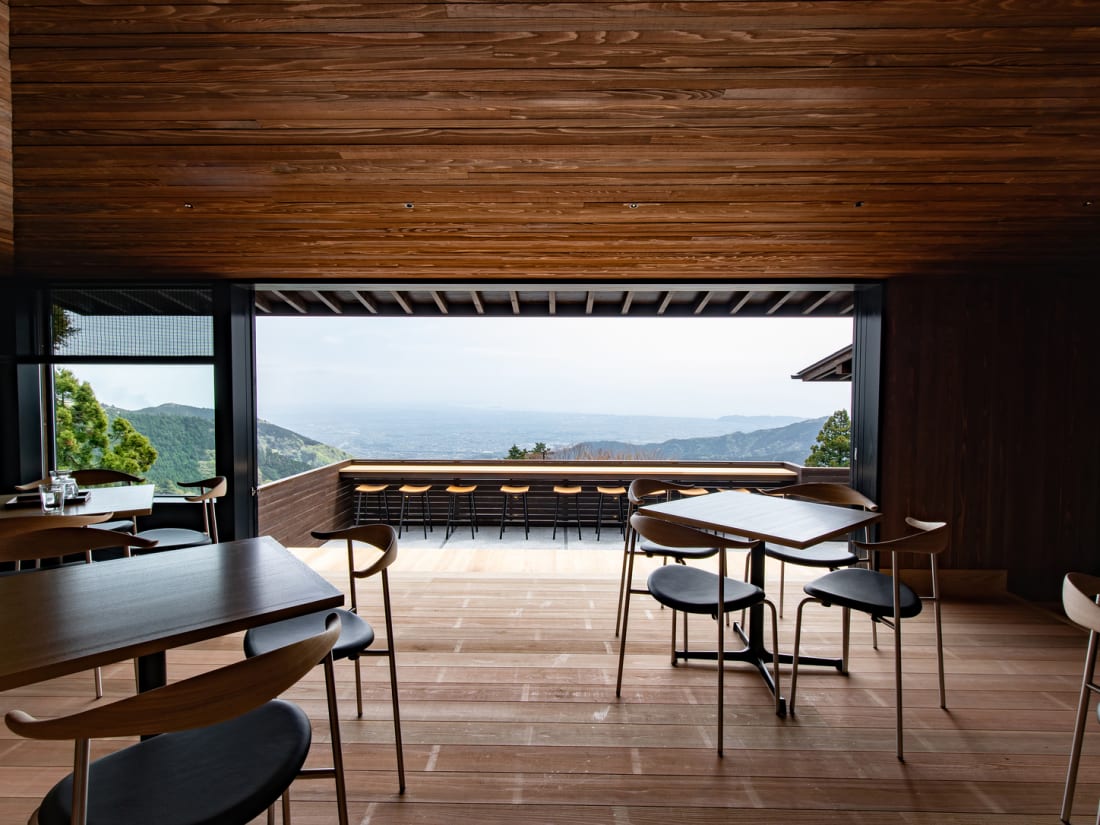
Courtesy of Teahouse Sekison
Peak Performance
Sekison is Uchida’s first café, but fusing the space with the shrine put him on familiar ground. The mountain, however, presented some unique challenges.
“It is very beautiful here,” Uchida said, gesturing to the trees dripping with rain and the silver gray sky that blurred the other buildings of the ancient complex only a few meters away. “However, the hardest part was the place. We started work in January of this year, so it was cold. All the materials had to be flown up, and this year was really snowy. We really had to think about how to do this task.”
Horibe and Uchida’s efforts have clearly paid off. Inside is a space at once modern and traditional with tatami floors, plaster walls and natural wood trim of cedar and persimmon. The dining space is divided between a traditional tatami area complete with a tokonoma (a recessed space for art) with comfortable floor seating and a wooden floored area with tables and chairs.
Both open onto a wide veranda ringed by a counter and stools where visitors can enjoy their refreshment of choice with a generous helping of panoramic views, Teahouse Sekison’s unique feature. In inclement weather, two giant sliding glass doors keep the elements at bay without detracting from the view.
Taking Cuisine to New Heights
Befitting a mountain teahouse, the menu offers a combination of light to hearty refreshments predominantly made from local ingredients. In addition to good, strong coffee, local tea comes hot or cold. Along with eggs from Sagami no Tamago, tea is also a key element in the decadent Seinyuchaka Tiramisu served in a traditional bamboo masu or square cup.
Tender, thin strips of Isehara beef rest atop steaming white rice all nestled in a beautiful ceramic bowl, while galettes (savory crepes) use local buckwheat flour, baby salad greens, fresh eggs and thin strips of salmon. Regional growers and producers also provide the tea, adzuki beans and milk for souvenirs.
Whether hiker, pilgrim, tourist or city dweller on a weekend getaway, Teahouse Sekison offers refuge and restoration in the clouds, perfect for body and soul.
Find more information at our Concierge listing.
Feature image courtesy of Teahouse Sekison

